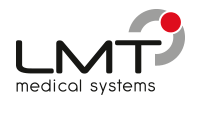Imaging May Aid Communication with People in Vegetative States
By MedImaging International staff writers
Posted on 19 Jul 2012
Researchers have devised new imaging applications that may enable people who are wholly incapable of speaking or moving at all to nonetheless achieve unscripted back-and-forth conversation. The solution to such quiet and motionless communication is the first real-time, brain-scanning speller.Posted on 19 Jul 2012
The study’s findings were published online on June 28, 2012, in the journal Current Biology. The new technology builds on cutting-edge earlier uses of functional magnetic resonance imaging (fMRI) brain scans to evaluate consciousness in individuals designated as being in an unconscious, vegetative state and to enable them to answer yes and no questions. fMRI is usually employed for clinical and research purposes to monitor brain activity by measuring blood flow.
“The work…led me to wonder whether it might even become possible to use fMRI, mental tasks, and appropriate experimental designs to freely encode thoughts, letter-by-letter, and therewith enable back-and-forth communication in the absence of motor behavior,” said Dr. Bettina Sorger, from Maastricht University (The Netherlands).
The new data reveal that the solution to that thought question is yes. Dr. Sorger’s team came up with a letter-encoding technique that entails nearly no pretraining. Study Participants voluntarily chose letters on a screen, which guided the letter encoding; for each specific character, participants were asked to perform a specific mental task for a set period of time. That generated 27 distinctive brain patterns corresponding to each letter of the alphabet and the equivalent of a space bar, which could be automatically decoded in real-time using newly developed data analysis methods.
In each communication experiment, study participants had a small conversation consisting of two open questions and answers. Everyone the researchers tested was able to effectively generate answers within a single one-hour session. The study’s findings considerably extend earlier uses of fMRI, which allowed individuals to answer the equivalent of multiple-choice questions having four or fewer possible answers, by enabling free-letter spelling. That could make all the difference for people who are completely paralyzed and unable to take advantage other ways of alternative communication, according to Dr. Sorger.
Eventually, Dr. Sorger reported that their goal is to convert the fMRI technology they have developed to a more portable and affordable method for measuring blood flow, such as functional near-infrared spectroscopy (fNIRS).
Related Links:
Maastricht University














